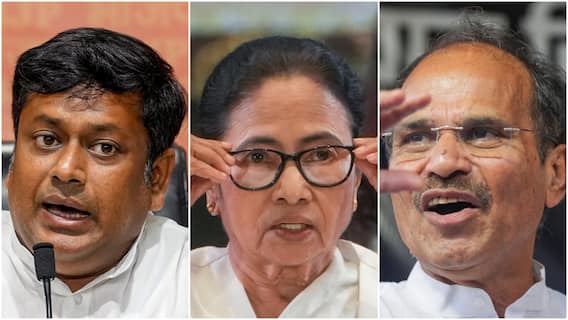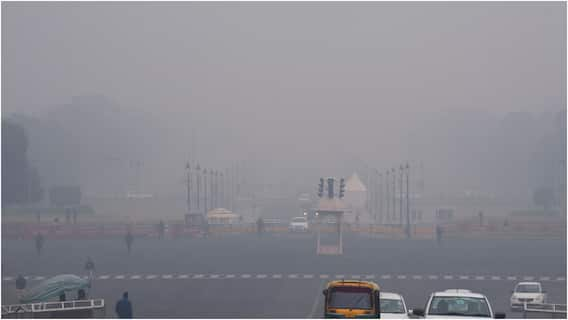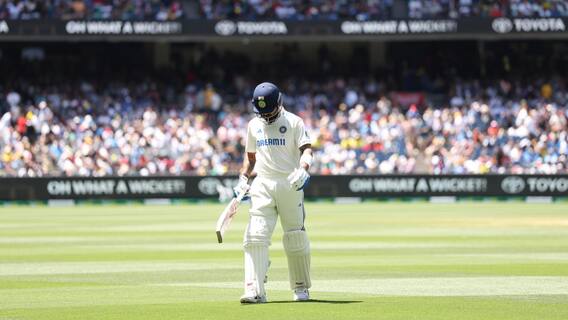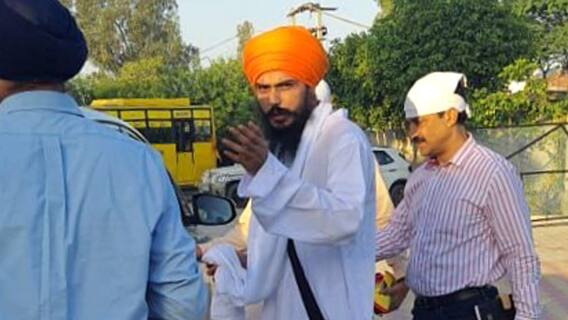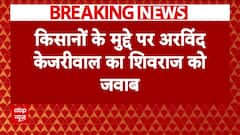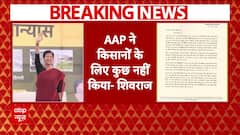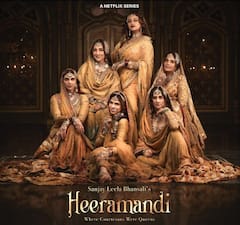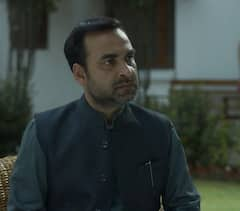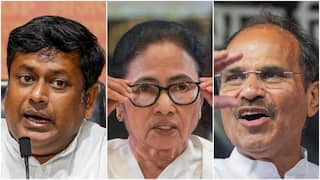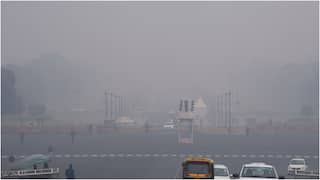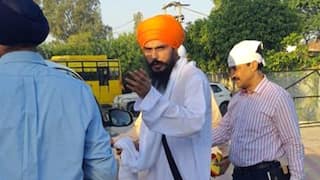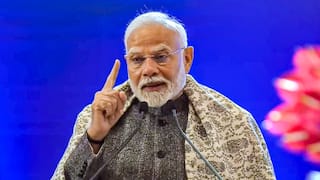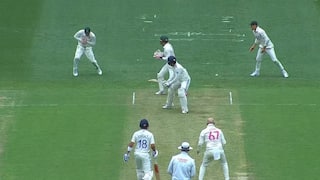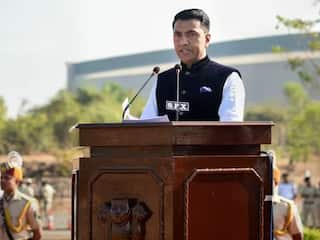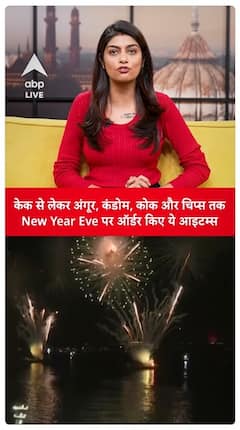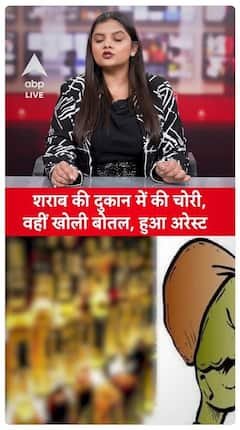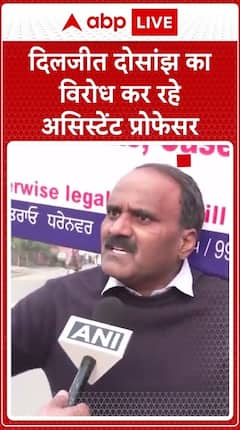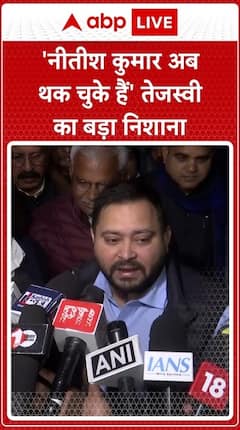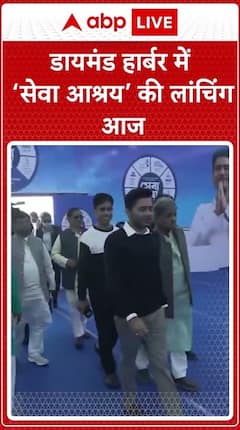Kazi Nazrul’s 'Karar Oi Louho Kopat' Song: Lyrics, Meaning And Row Over AR Rahman Version For Pippa Film
Nazrul Islam was known as the ‘Bidrohi Kobi (rebel poet), and his words inspired the freedom fighters in their struggle to liberate India from British rule.

Pippa Song Controversy: AR Rahman has found himself at the centre of a controversy, with his version of a famous Bengali patriotic song by legendary poet Kazi Nazrul Islam receiving backlash from a section of people. The song, ‘Karar oi louho kopat…’, meaning ‘the iron bars of prison’, is part of the newly released Bollywood film, Pippa, which stars Ishaan Khatter and Mrunal Thakur, among others. The film is based on the 1971 India-Pakistan War that ended with the birth of Bangladesh. Incidentally, Kazi Nazrul happens to be the national poet of Bangladesh, a status conferred on him in 1972.
Nazrul Islam was known as the ‘Bidrohi Kobi (rebel poet), and his words inspired the freedom fighters in their struggle to liberate India from British rule. Nazrul himself was arrested in 1923 as the founder and editor of a magazine that criticised the British.
‘Karar oi louha kopat’ is one of his rebel songs that fuelled the spirit of patriotism with its strong lyrics.
‘Karar Oi Louho Kopat’ Lyrics And Meaning
Karar oi louho kopat
Bhenge fel, kor re lopat
Rokto jomat shikol-pujar pashan-bedi
Ore o torun ishan
Baja tor proloy-bishan dhongsho-nishan
Uduk prachir prachir bhedi
Gajoner baina baja
Ke malik? Ke je raja?
Ke daay shaja, mukto-swadhin satyo ke re?
Ha ha ha paaye je hashi
Bhogobaan porbe phanshi?
Shorbonashi shikhaye a heen totthyo ke re?
Ore o pagla Bhola, dere de proloy-dola
Garod gula, jorse dhore hachka taane
Maar haank Hyderi haank, kandhe ne dundubhi dhak
Daak ore daak, mrittyu ke daak jibon paane
Nache oi kaal-boishakhi
Katabi kaal boshe ki?
De re dekhi Bhim karar ol bhitti naari
Lathi maar bhangre tala!
Joto shob bondishalaye
Agun jala, agun jala, fel upari.
Here is a loose translation of the song from Bangla to English:
Break down those iron gates of the prison,
Completely destroy them
Let the stone altar where the blood-clotted shackles are worshiped disappear
Oh young Ishan (the Sun), blow your trumpet of destruction,
Let the flags of ruin fly, piercing through the prison walls of the East.
Play the music of Gajan (the music of Lord Shiva),
Who is the master, who is the king?
Who can punish free and independent truth?
It’s laughable they say
God will be hanged.
Who teaches these devastating vile truths?
Oh crazy Bhola (Shiva), give us the tremours of apocalypse,
Firmly grasp the prison bars and give a strong pull,
Shout the battle cry of Haider,
Take the war drum on your shoulder,
Call out, call out to death, towards life.
The storm of Kaal-Boishakh is dancing,
Will you sit idle and while away time?
Let's see the foundation of the mighty prison shaken
Kick and break the locks
In all the damned prisons
Light the fire, set them ablaze
Uproot them all.
READ | Pippa Twitter Review: Netizens Love AR Rahman Music, Some Say Ishaan Khatter Film Has A 'Vibe'
Controversy Over AR Rahman Version
Though known as ‘Rebel Poet’, Nazrul wrote songs of other genres too, and they were collectively known as ‘Nazrul Geeti’. Like Rabindrasangeet, by Rabindranath Tagore, Nazrul songs are also immensely popular among Bengalis who don’t approve of them being altered.
In the Pippa number, Academy Award-winning composer AR Rahman has used the lyrics of the popular Nazrul song, but its rhythm and tune are different from the original version.
Bengalis across India, Bangladesh and other parts of the world are outraged over the “distortion”.
Kazi Anirban, Nazrul’s grandson and painter, told news agency PTI that his mother did give her consent to the makers of Pippa to use the song but to change the tune. “The way the song has been dished out with the change in rhythm and tunes is shocking,” he said.
Nazrul’s granddaughter Anindita Kazi demanded that the Pippa song be “immediately omitted from the film and removed from the public domain”. “As members of his family and lovers of his creations, we cannot accept this distortion,” the PTI report quoted her as saying in a voice note from the US.
Several singers from India and Bangladesh have also criticised Rahman and Bengali singers who were part of the song.
Taking to X, formerly Twitter, Bangladeshi writer Taslima Nasrin posted: "A R Rahman changed the music of Bengali legendary poet, lyricist, composer Kazi Nazrul Islam's famous 1921's anti-British song 'Karar Oi Lauho kapat'. Bengalis are furious. They demand for stopping Rahman's remake and keeping the original music of the song."
A R Rahman changed the music of Bengali legendary poet, lyricist, composer Kazi Nazrul Islam's famous 1921's anti-British song 'Karar Oi Lauho kapat'. Bengalis are furious. They demand for stopping Rahman's remake and keeping the original music of the song.
— taslima nasreen (@taslimanasreen) November 11, 2023
‘Karar oi louho kopat’ was first published in 1922 in ‘Banglar Katha’ (Stories of Bengal) magazine, and later included in Nazrul’s book ‘Bhangar Gaan’ (Songs of breaking free).
Born in 1899 in West Bardhaman district of present-day West Bengal, Nazrul had been a poet, song composer, flautist, singer, short-story writer, playwright, novelist, and political activist too, in his young life. For a large part of his life later, however, he remained sick and had to stop work. The neurological condition he reportedly suffered from caused a memory loss. In 1972, months after Bangladesh was created, the new government took him to Dhaka with the consent of Indian authorities, and conferred the status of ‘National Poet’ on him. In 1976, Bangladesh gave him citizenship, and he died there the same year at the age of 77.
READ | Lal Salaam Teaser Release: Rajinikanth Steels The Show As Moideen Bhai
Trending News
Top Headlines








